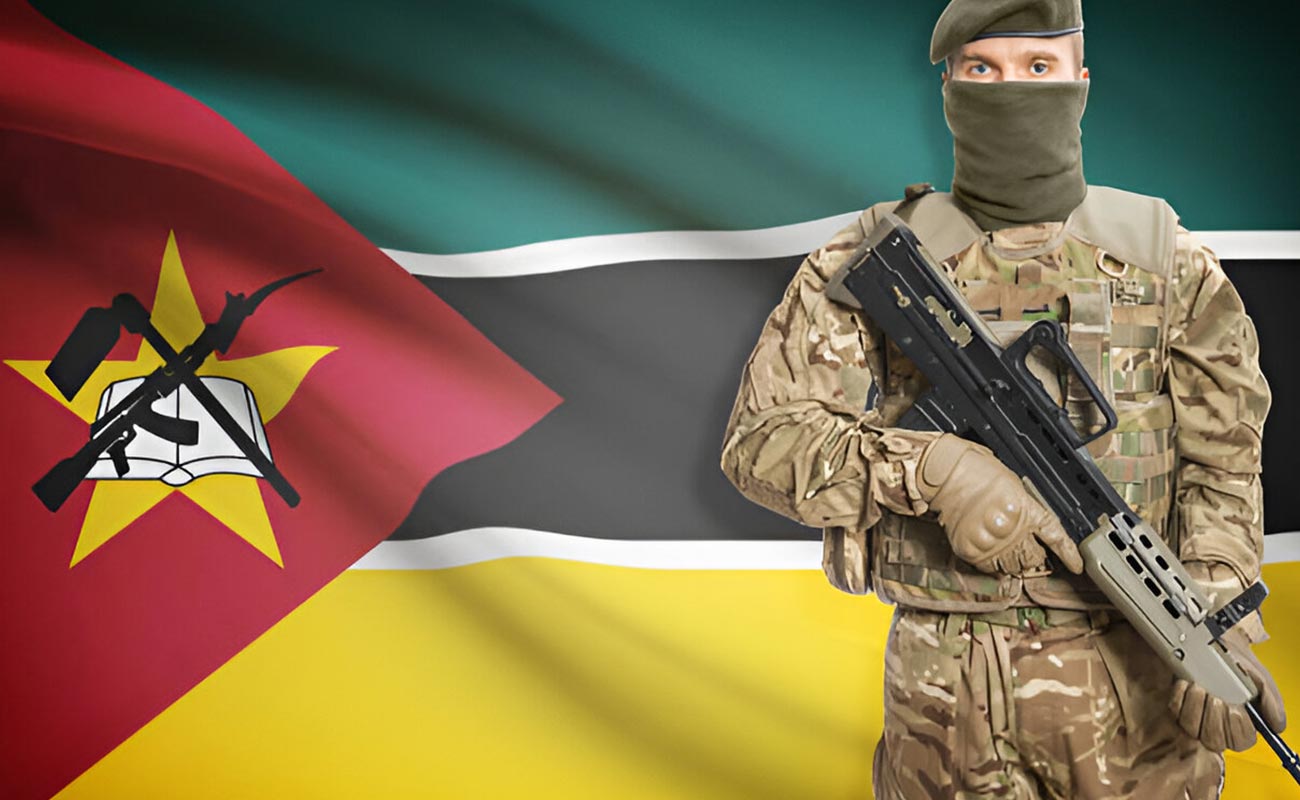
By Francis Assam
The Southern African Development Community (SADC) military mission in Mozambique, known as the Southern African Mission in Mozambique (SAMIM), was deployed on July 15, 2021. Its mission: to confront the jihadist insurgency that has plagued the oil and gas-rich Cabo Delgado province since 2017. This insurgency, led by the group now calling itself Al-Sunnah, had rapidly spread, causing violence, displacement, and economic disruption.
Pressure from SADC member states and the African Union (AU) mounted on the Mozambican government, urging regional military intervention. Their fear? That the Islamic State (ISIS)-affiliated extremists would establish a dangerous bridgehead for further expansion. According to the Institute for Justice and Reconciliation, over five thousand people have been killed, with one million civilians forced to flee their homes due to violent attacks by these insurgents. Notably, the insurgency even disrupted a $60 billion liquefied natural gas project by Total Energies, Eni, and Exxon, a critical investment for local, national, and regional economic growth.
The SAMIM deployment included over 2,210 troops comprised of 8 SADC member states namely, Angola, Botswana, the Democratic Republic of Congo, Lesotho, Malawi, Tanzania, and Zambia, with a dominant South African contingent of 1,495 soldiers.
Their mandate includes supporting the Republic of Mozambique to combat terrorism and acts of violent extremism in Cabo Delgado, by neutralizing terrorist threats and restoring security to create a secure environment; strengthening and maintaining peace and security, restoring law and order in affected areas of Cabo Delgado Province; and supporting the Republic of Mozambique, in collaboration with humanitarian agencies, to continue providing humanitarian relief to population affected by terrorist activities, including internally displaced persons (IDPs).
Achievements and Challenges
The SADC forces achieved several milestones since their deployment. These include neutralizing terrorists, recapturing villages, dislodging terrorists from their bases, and seizing weapons and equipment. These efforts contributed significantly to facilitating the return of internally displaced persons to their homes and ensuring safe passage to humanitarian support.
Despite these achievements, the SADC forces faced myriad challenges, including budgetary constraints and being underfunded, as SADC member states struggled to provide necessary support and resources, impeding operational effectiveness and sustainability of the mission.
Besides the budget shortfall, the mission also struggled with logistical challenges. Additionally, the mission also faced allegations of human rights abuses by some SADC troops, which centered around the mistreatment of civilians and arbitrary arrests.
Also, as a sub-regional body, SADC has decided to shift its priority to the stabilization of conflict-ridden DR Congo, contributing over 2000 of its troops last year.
Implications
With the mandate of the SAMIM set to expire on the 15th of July 2024, having had countries like Lesotho and Botswana withdraw their troops, with South Africa and Tanzania leaving their troops till the end of the year, Mozambique would be faced with a potential security vacuum in its counter-insurgency efforts in the Cabo Delgado province.
Events are now unfolding in this case, following the Islamic State full-blown attack in Macomia and Quissanga town in Cabo Delgado province in May. This attack resulted in fresh killings and displacement, with insurgents gaining a territorial foothold in those towns. Consequently, nearby towns are now under imminent threat. With fewer regional forces in the province, the insurgents have the momentum to launch more attacks and explore new approaches. For instance, terrorists have resorted to kidnapping children and using them as conduits to advance their attacks.
Similarly, the May attack has triggered a new wave of displacements. According to a report by BBC, over 700 people fled during the latest round of attack, with medical facilities being raided and vehicles and medical supplies taken away. Given the ongoing conflict had already displaced thousands of civilians before the arrival of SADC troops, the withdrawal of the troops could deepen the humanitarian crisis.
Moreover, the recurring attacks in the Cabo Delgado province, coupled with the diminishing presence of SADC troops, could significantly impact the revival of the $60 billion liquefied natural gas project led by Total Energies, Eni, and Exxon. This ambitious project had been suspended in 2021 due to security concerns. The withdrawal of SADC forces may intensify the existing instability, affecting not only the energy sector but also other business operations. Consequently, investment prospects in this oil and gas-rich region face a substantial setback, further hindering Mozambique’s economic growth.
Way forward for Mozambique
Considering these implications, Mozambique must urgently address the emerging security and humanitarian challenges amid the resurgence of activities by IS-affiliated extremists in Cabo Delgado province.
Mozambique should actively seek bilateral agreements with national and international actors with a vested interest in regional stability. Drawing from its bilateral agreement with Rwanda, which resulted in the deployment of over 2,000 troops, further establishing bilateral agreements with allied African countries and international organizations would ensure robust security measures. These partnerships would enhance intelligence sharing and capacity building and prioritize training for the Mozambican Military. By equipping their forces with specialized skills, Mozambique will be better prepared to effectively address future threats.
Implementing robust early warning systems is crucial. Mozambique must invest in intelligence gathering, surveillance, and analysis. By identifying threats early, they can respond swiftly and prevent attacks. Regular risk assessments will help adapt strategies and allocate resources effectively.
Mozambique should prioritize comprehensive threat analysis. This involves understanding the motivations, tactics, and networks of extremist groups. Intelligence fusion integrating data from various sources will provide a holistic view, enabling informed decision-making.
Addressing the root causes of extremism is essential. Northern Mozambique has long grappled with inequality and underdevelopment making it a fertile ground for recruitment by extremist groups. To counter this, there’s a need for the Mozambican government to invest in infrastructure development, education, and job creation, which in turn will be crucial in reducing vulnerability and disrupting narratives extremist exploit.
